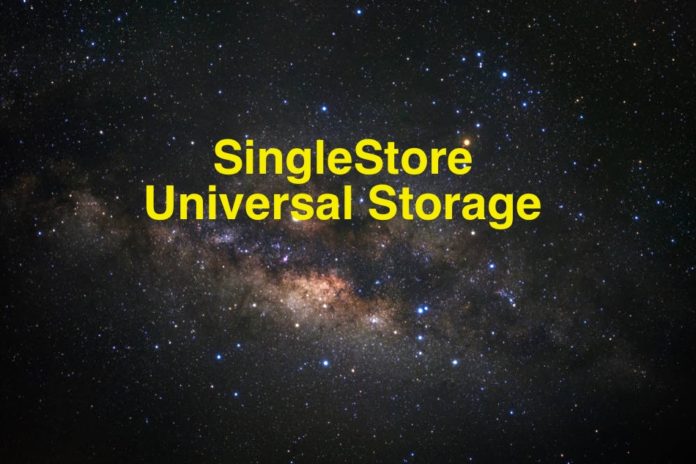SingleStore is adding separate compute and storage facilities to its database. The result is that that both can scale independently, with data files persisted to S3 in a continuous backup, providing point-in-time recovery as well as nullifying any need for ETL (Extract, Transform Load) routines.
The SingleStore distributed, relational SQL database, originally known as MemSQL, can handle both transaction and analytic workloads and is available on-premises and in the public cloud.
A canned quote from SingleStore CEO Raj Verma read: “SingleStore provides the world’s only highly performant, hybrid multi-cloud database that unifies analytical and transactional workloads.” He reckons “We’ve created a new category that will define the future of databases and data platforms.”
Customers can scale up storage without overdosing on compute. The latest release, v7.4, also adds point-in-time recovery, which SingleStore says enables a system-of-record capability as the database can now be an authoritative source for any element of data it stores.
SingleStore initiated a universal storage project in v7.0 of its database back in December 2019, aiming to erase differences between rowstore and columnstor tables. Rowstores are good for transaction processing, with columnstores suited to analytical processing. The intention was to to allow operational and analytical workloads to be processed using a single table type.
The first implementation (phase 1) allowed OLTP applications to use columnstore tables to run operational transactions on data much bigger than RAM. Phase 2, in v7.1 of the database, made more improvements to rowstore-like aspects of performance on the columnstore side, with hash indexes on columnstores to allow fast location of a row in a columnstore, given its key value. It also featured sub-segment access, and row-level locking in a columnstore.
The v7.3 release went further, with columnstores capable of being a default table type, and improved data insertion features — known as upserting. Now, in the latest release, SingleStore has added multicolumn key support to improve data access and, it says, make universal storage a reality.
SingleStore claims its customers no longer need separate operational and analytical systems. Chief Product Officer Jordan Tigani said “Universal storage is the last step in realising the vision of a single database that supports both analytical and transactional workloads in one place. Now developers can add analytics to their applications, and data engineers can keep up with rapidly changing data using SingleStore.”
The company says developers don’t have to spend time extracting, transforming, and loading (ETL) to a data warehouse to perform analytics. A unified platform also makes queries run faster and decreases complexity and friction.
In effect, SingleStore is saying customers don’t need Snowflake or other data warehouses. Run analytics in your transaction and other source data, and banish ETL routines to the data warehouse dark ages whence they came.








